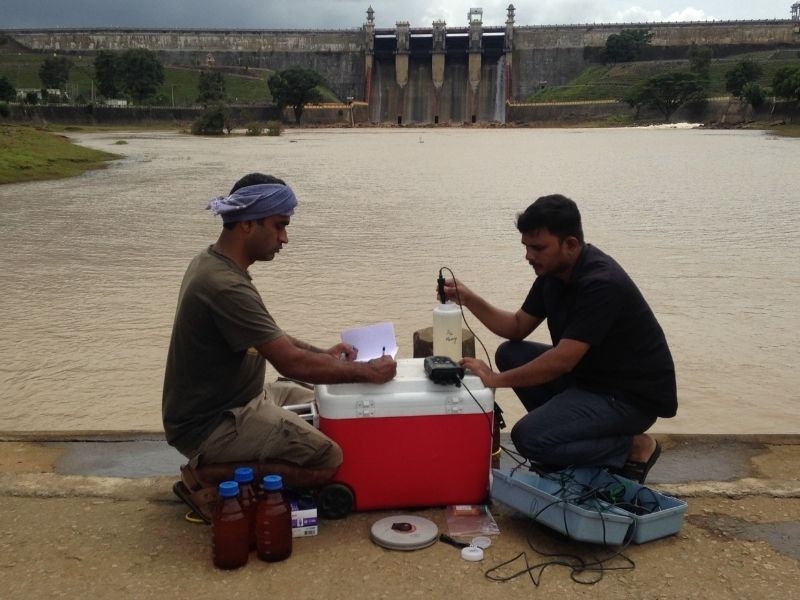Researchers at the Indian Institute of Technology Madras have found traces of harmful chemicals including pharmaceutically-active compounds in the waters of river Cauvery. Researchers reported that the river is polluted by a range of other emerging contaminants that include personal care products, plastics, flame retardants, heavy metals, and pesticides, among others.
This study has been carried out with joint funding from Water Technology Initiatives of the Department of Science and Technology, Government of India and the UK Natural Environment Research Council.
Pharmaceutical contamination is regarded as particularly serious and is the second-largest pharmaceutical manufacturing country in the world. These compounds from drugs, when released even in minuscule proportions into water bodies, can harm human beings and the ecosystem in the long run.
A team of researchers from IIT Madras led by Dr Ligy Philip, Nita and KG Ganapathi Institute Chair Professor, Department of Civil Engineering, IIT Madras, quantified the seasonal distribution of emerging contaminants and pollutants in the River.
The study showed that it was essential to regularly monitor rivers and their tributaries for contamination by pharmaceutical products while also indicating that there is a need to upgrade wastewater treatment systems to reduce the levels of emerging contaminants in receiving water bodies such as rivers. The findings of this work also point to the need for more research into assessing the long-term impacts of emerging contaminants on human health and the environment.
In an official statement, Dr Ligy Philip, Nita and KG Ganapathi Institute Chair Professor, Department of Civil Engineering, IIT Madras, said, “We monitored the water quality of Cauvery River for two years to assess the seasonal variation of emerging contaminants, especially pharmaceutically active compounds.”
Further, Prof Ligy Philip said, “The IIT Madras team collected water from 22 locations along entire stretch of the river. We also set up 11 sampling stations near discharge points of partially treated or untreated wastewater and 11 locations near intake points of water supply systems. The quality of water at the catchment sites was also monitored.”
River networks contribute to 0.006% of global freshwater and often serve as a lifeline for various domestic and industrial activities. Worldwide, water quality of the river systems has been deteriorating due to various anthropogenic activities. One river system in South India that has been subjected to constant human threat is the River Cauvery.
The Research Team found that water quality and levels of pharmaceutical contaminants in the Cauvery are influenced by the monsoon season. The post-monsoon period showed an increased level of various types of contaminants including pharmaceuticals due to reduced riverine flow and continuous waste discharge from multiple sources.
Also read:
IIT Madras launches Indian Network for Memory Studies
IIT Madras researchers develop voice-based vernacular solutions for digital payment
